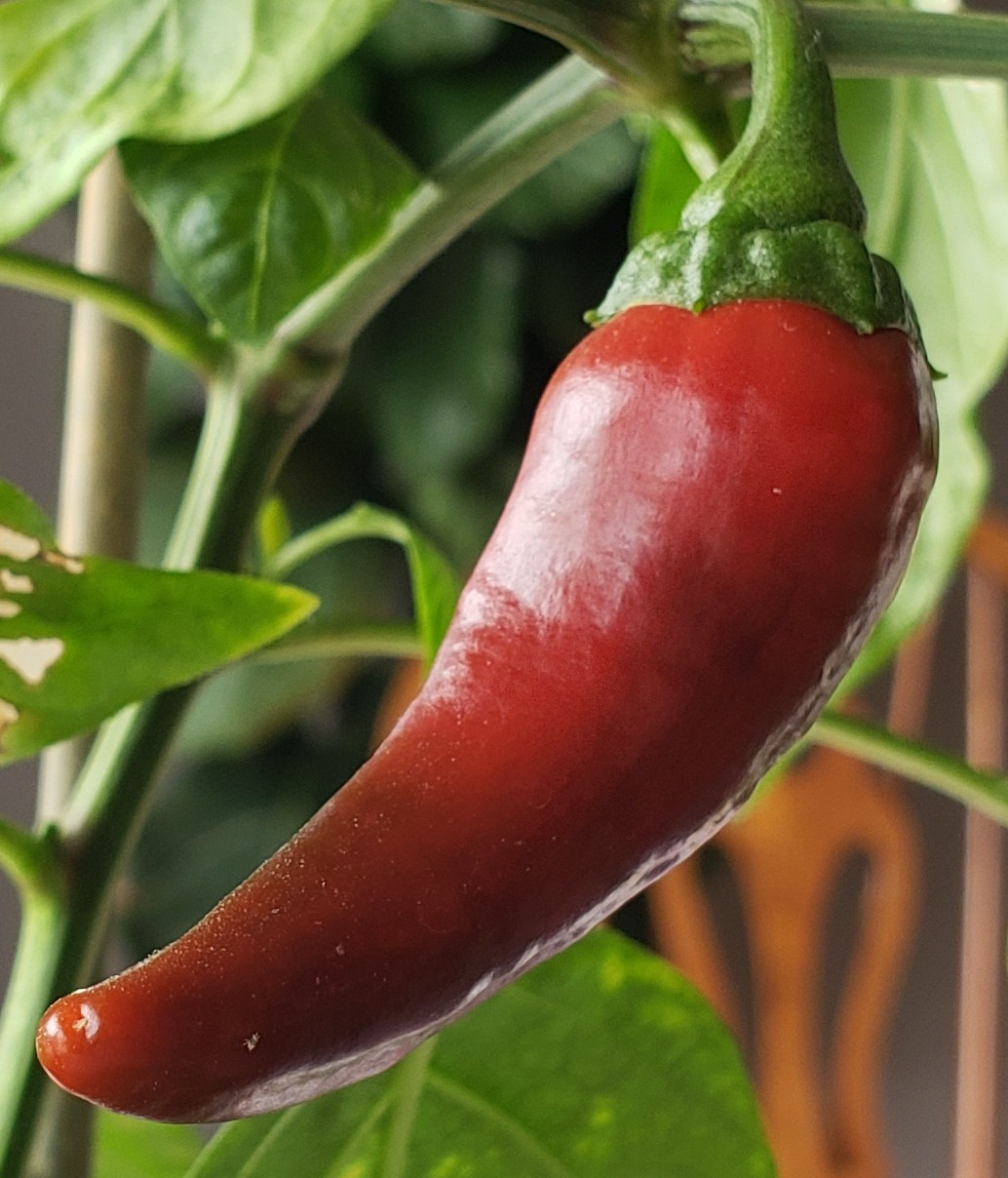That’s it, that’s the post.
Nah comrade it depends on the vines. I’ve got vining jasmine, honeysuckle, beans, wisteria, bougainvillea, and passion fruit growing.
Just gotta plant the right stuff.
we’ve got wild passion fruit here and they always fall off and rot before managing to ripen

That’s terrible. It really sucks to watch something set fruit then the fruit withers and rots away.
Wisteria looks beautiful for like 2 weeks. But it’s so worth it.
That’s about what I get out of it as well, two-three weeks then it’s just an indiscriminate green vine again. But those two or three weeks that it blooms really are perty.
This post just reminded me to go rip out a bunch of invasive vines in my backyard before they took over.

been fighting a war all summer myself
there’s a poison ivy vine easily 5+ years old that has completely replaced a huge bush like the Thing.
I wish English Ivy a very extinction
I just ripped a bunch down off an outbuilding the base was thick enough for a chainsaw. Pulled a bunch down but theres still a shitload attached. I severed it all at ground level so I’m hoping it will come down easy once it’s dead. Otherwise I will need to use a ladder.
Some virginia creeper on the other side grew between the building and the siding and came popping up 12 feet later
Fuck vines, and fuck whoever planted these
You should put some systemic herbicide on the stems you cut, something with triclopyr. Vines store a lot of energy under ground, they will almost certainly come back and be harder to kill because they’ll spread out.
I don’t like using herbicides but this is one of those places where it will really help, and doesn’t run much risk to other plants. Apply it with a brush to the freshly cut stems.
Thanks I did that, hopefully they don’t come back
Selling this shit should get you immediate gulag
What about native vines? Here in the PNW we have orange honeysuckle, which I’ve been thinking of planting to cover up my neighbor’s ugly fence (used to be covered in English Ivy).
If it vines by wrapping around stuff (and thus needs a trellis like structure to grow on), it should be fine. The other posters are having problems with English Ivy which adheres by digging aerial rootlets into structures (ie masonry, wood) to gain a foothold, and Virginia Creeper which adheres by having aerial rootlets with little pads that produce an adhesive cement like substance. The adhesive has to be continuously renewed by the plant and will eventually fall off the building after being killed. Manually removing Virginia Creeper before the adhesive has worn out will probably damage the siding or wall.
English Ivy can be quite bad for a building where Virginia creeper is mostly annoying. That depends on the siding of course. Solid masonry or stucco, as long as its well pointed or in good shape is going to be fine. Vinyl, shingle, or anything with an air cavity (masonry vaneers tied to a wood wall) is a real gamble. You dont want little spaces that the vining plant grow up into. That’s any kind of vining plant.
There are some very positive upsides to vining plants if the wall is appropriate and the plant isn’t English Ivy. A fully covered wall can considerably cooler on a hot day. Instead of the sun pounding into a solid brick wall, storing all that heat in the wall like a battery, a covered wall will have the plant both reflecting sunlight and cooling themselves down via transpiration. I remember reading a paper where the author compared the temperature of wall covered in ivy vs bare walls and the ivy walls were 15F cooler.
Looks similar to jasmine, would probably be fine for a fence but I would just research whatever variety you’re looking at to make sure it doesn’t have a tendency to take over the yard.
deleted by creator
I have cardinal climbers for my trellis. They attract lots of honey bees and I even spotted some hummingbirds a few times. But I have to be aggressive with controlling the vines because they will spread if I neglect them for more than a few days.
If you plant some make sure to put them in an area where you can control any seedling growth. They’ll take over your flower bed if you’re not careful.










